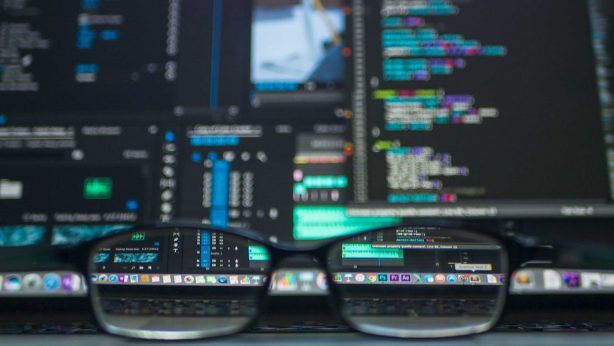Help for Seattle Inventors
Seattle As Innovation Hub
Seattle has long been the destination for innovative companies and startups — and that’s still true. With Amazon and Microsoft adding heft to the region’s reputation, we’re now one of the world’s most attractive cities for STEM jobs, according to a recent CBRE report.
In addition, a number of major technology companies are expanding their engineering operations into the Pacific Northwest. These include Google, Facebook, Apple, Twitter, Salesforce, Dropbox, Uber, SpaceX, Taser, Palantir and Groupon.

Top Industry
Whether it is an international tech company like Apple, Microsoft, Facebook, or Salesforce, or local startups like Domicile and Convoy, Seattle is rapidly becoming one of the top innovation hubs in the world. In fact, according to a CNBC report, Washington ranked second overall on their list of Top States for Business in 2018.
The tech industry has become one of the most important drivers for Seattle’s economy and the area has seen a steady increase in job creation in this area. The city has become a prime location for technology companies because it is home to the country’s most educated workforce, which means that the tech industry is able to attract and retain some of the best talent in the nation.
As a result, many tech companies have been expanding their presence in the area and acquiring a significant amount of office space. This trend is reflected in the current real estate market as well as the overall economy.
A new JLL report finds that the tech sector is proving to be one of the most significant drivers in the office leasing market. In fact, a recent four-year period saw the Seattle/Puget Sound office market experience the second-most leasing activity among technology firms in the country, behind only Silicon Valley.
This momentum is driven by a variety of factors, including Seattle’s rich talent pool and the strong economic growth in the area. Additionally, the region has an extremely low income tax rate.
This allows the area to offer a more affordable housing option for those who are looking to relocate from their current location, while also giving them access to the benefits of living in an exciting, growing industry. In addition, the area is also known for its beautiful natural landscape and unique lifestyle.
Top Inventors
Seattle has a long history of innovation and ingenuity. Learn about some of the artifacts connected to Seattle’s trailblazing histories in True Northwest: The Seattle Journey, an interactive experience that highlights our region’s many contributions to innovation and invention.
While we’re often lauded as the home of e-commerce giant Amazon, the real engine of innovation and business in Greater Seattle is its burgeoning start-up ecosystem. From social media, to aerospace and beyond, Greater Seattle’s tech-based companies are a driving force in the local economy.
In today’s world, where new features and research collaborations are happening at unprecedented speed, products that are able to adapt quickly to the changing landscape are more valuable than ever. Some of the top inventors in Seattle are taking advantage of the innovations that are being made to improve their products and services.
Inventors like former Amazon employee Jeff Lawson launched Twilio, which is one of the top business communications companies in the world. He also co-founded Convoy, which is leading the way in efficient freight shipping.
Another innovator is William Dubilier, who was 20 when he exhibited at the 1909 Alaska-Yukon-Pacific Exposition a device that transmitted voice. Later, he built a wireless communication link between Seattle and Tacoma that allowed anyone in the area to talk to someone else.
In the past decade, a large number of patents have been granted to inventors in Washington state. It’s a good indication that the state is on the cutting edge of technology. In 2013, Washington ranked fifth among the states with the most patents issued.
Inventor Assistance Centers
Over the years, technology has been a driving force in the US economy. However, the benefits have been largely concentrated in a handful of large, densely populated cities. This has left smaller, less centralized economies with an untapped opportunity to benefit from the industry’s growth.
A new federal initiative, the CHIPS and Science Act, has the potential to realign economic opportunities and promote economic growth in smaller cities and rural areas. Specifically, the bill authorizes $10 billion for 20 new regional technology hubs across the country.
The hubs would bring together federal agencies, universities, and corporations with the aim of bolstering the science and technology industry and stimulating economic growth. They could also contribute to the overall goal of closing the urban-rural gap, promoting growth in smaller, more regional economies and, in turn, improving the quality of life for all Americans.
Several Seattle-based organizations offer resources and services to help entrepreneurs, inventors and startups. Among them are the Chamber of Commerce, which engages its members to advance economic prosperity, advocate for vital business environments and build sustainable communities.
In addition, the city’s Office of Economic Development offers a variety of programs to support innovation, entrepreneurship and small business development. From free business counseling and mentoring for small businesses to the TechHire community, which aims to connect underemployed adults with technology training providers, these organizations are dedicated to creating a vibrant and equitable business environment.
Finally, the city’s Bold Patents group is a good resource for businesses that want to learn more about the patent process or improve their pitching skills. These groups are also a great way to meet other local entrepreneurs and inventors.
Incubators in the Area
Seattle is an innovation hub and home to a variety of accelerators and incubators that cater to the local startup community. From workshops to tools, capital and technology, to mentorship that tackles hard entrepreneurship truths, these programs offer a full package for startups looking to gain traction in the local ecosystem.
Techstars, for example, has a 3-month program in Seattle that invests $120k in startups, and is one of the largest startup accelerators worldwide. The program helps businesses gain traction via fundraising preparation, deep mentor engagement and rapid iteration cycles.
Another accelerator, Madrona, is not your typical startup incubator. They adopt a founder, run their idea through a selection process and fund the few that survive.
Then, the studio brings their venture capital backing and experience to help turn ideas into market-defining startups that are worth the investment. They keep a running tally of the “ideas spun-out” to “ideas killed,” which is about 6:79 at the time of writing.
PSL helps tech-focused companies form a business, validate the idea, create a product, find customers and seek financing. Their team brings decades of experience in entrepreneurship and domain expertise to make sure that each company is on track for success.
Computational health: As more companies combine software such as machine learning and AI with healthcare, Seattle has become a global hub for computational health firms. The latest innovation effort is a new center based at the UW, which aims to be a conduit for health and engineering experts as well as a source of mentorship for local entrepreneurs.
A system of cross-industry labs provides support to 60 to 90 startup businesses at a time, ranging from pre-seed to Series A. The labs have locations in a wide variety of industries, and support includes prototyping, prototyping materials, shared office space, coaching and access to capital.
SBDC in the Area
Several cities across the country are known as innovation hubs, including Seattle. These cities offer a variety of services to help entrepreneurs grow their businesses. They provide free or low-cost business advice, workshops and seminars.
In addition, they often have a strong support system for new businesses and are committed to helping them succeed. The Washington State Small Business Development Center (SBDC) is a network of expert advisors that serve communities throughout the state.
Many of these centers are located at universities, but they also serve smaller companies and start-ups. They provide confidential business counseling to help businesses develop their strategies and increase sales.
Some of these centers also have a focus on specific industries, such as tech or healthcare. They can also offer training and workshops on topics such as marketing, finance and accounting.
The University of Washington, for example, surrounds its students with an extraordinary ecosystem for discovering and launching innovative businesses. Its two branch campuses in Tacoma and Bothell, as well as the UW Global Innovation Exchange in Bellevue, are a major draw for entrepreneurs.
For a city like Seattle, which is struggling to deal with sky-high real estate prices and income inequality, innovation can be an important factor in attracting new residents. It can also help bring in new revenue from startups and attract investors.
The William Grose Center in Seattle is a real-life example of the type of innovation hubs that cities across the country are trying to create. It aims to provide opportunities for Black residents in the Central District, a historically black neighborhood in Seattle, to equitably participate in the region’s booming technology economy. It’s the latest in a string of efforts to promote entrepreneurship and support Black-owned businesses in Seattle.


